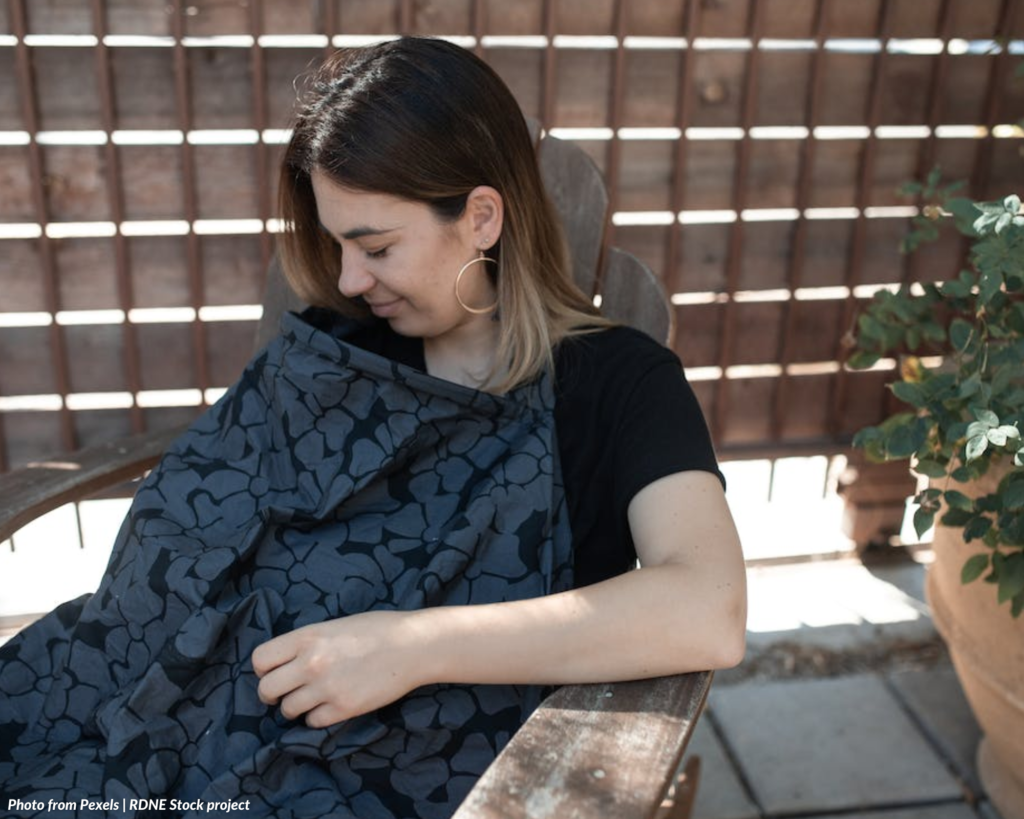
Photo from Pexels | RDNE Stock project
The following post does not create a lawyer-client relationship between Alburo Alburo and Associates Law Offices (or any of its lawyers) and the reader. It is still best for you to engage the services of a lawyer or you may directly contact and consult Alburo Alburo and Associates Law Offices to address your specific legal concerns, if there is any.
Also, the matters contained in the following were written in accordance with the law, rules, and jurisprudence prevailing at the time of writing and posting, and do not include any future developments on the subject matter under discussion.
AT A GLANCE:
Nursing employees shall be granted break intervals in addition to the regular time off for meals to breastfeed or express milk. These intervals, which shall include the time it takes an employee to get to and from the workplace lactation station, shall be counted as compensable hours worked. The Department of Labor and Employment may adjust the same provided that such intervals shall not be less than a total of forty (40) minutes for every eight (8)-hour working period. (Section 12, Republic Act No. 1002
Being a mother to a child is a lifetime commitment that starts with the obligation of keeping a newborn healthy and well. One of the policies that the state promotes is the encouragement of breastfeeding practice to ensure the welfare and development of the newly born children. Study shows that breastfeeding is best for the mother and the baby keeping them from certain illnesses and diseases. Importantly, a mother’s milk is healthier than baby formula specially for infants aged 0 to 6 months.
The legislature enacted Republic Act No. 10028 or the Expanded Breastfeeding Promotion Act of 2009 encouraging Breastfeeding in Workplace Policy. The policy establishes a “mother-baby friendly” workplace to recognize the importance of breastfeeding for the mother and her child.
Lactation Stations
The law defines lactation stations as private, clean, sanitary, and well-ventilated rooms or areas in the workplace or public places where nursing mothers can wash up, breastfeed or express their milk comfortably and store this afterward. (Section 3(p), Republic Act No. 10028)
One of the pertinent provisions of RA 10028 is Section 11 providing for the establishment of Lactation Stations. Whereby, all health and non-health facilities, establishments, or institutions shall establish lactation stations not located in the toilet. Said lactation stations shall be adequately provided with the necessary equipment and facilities, such as:
- Lavatory for hand-washing, unless there is an easily-accessible lavatory nearby;
- Refrigeration or appropriate cooling facilities for storing expressed breastmilk;
- Electrical outlets for breast pumps;
- A small table;
- Comfortable seats; and,
- Other items.
The Department of Health shall provide the standards for the necessary equipment and facilities. In addition, all health and non-health facilities, establishments, or institutions shall take strict measures to prevent any direct or indirect form of promotion, marketing, and/or sales of infant formula and/or breastmilk substitutes within the lactation stations. (Section 11, Republic Act No. 10028)
Lactation Periods as Compensable Hours
Nursing employees shall be granted break intervals in addition to the regular time off for meals to breastfeed or express milk. These intervals, which shall include the time it takes an employee to get to and from the workplace lactation station, shall be counted as compensable hours worked. The Department of Labor and Employment may adjust the same provided that such intervals shall not be less than a total of forty (40) minutes for every eight (8)-hour working period. (Section 12, Republic Act No. 10028)
Mother-Baby-Friendly Establishments
Any health and non-health facility, establishment, or institution satisfying the requirements for a proper lactation station may apply with the local Department of Health office for a ‘working mother-baby friendly’ certification. The Department of Health shall promulgate guidelines to determine eligibility for such certification, which shall include an annual Department of Health inspection to confirm the continued compliance with its standards. “The Department of Health shall maintain a list of ‘mother-baby-friendly’ establishments, which it shall make available to the public.” (Section 18, Republic Act No. 10028)
What’s in it for the establishments?
The expenses incurred by a private health and non-health facility, establishment, or institution, shall be deductible expenses for income tax purposes up to twice the actual amount incurred. One of the salient requirements for said incentive is that such facilities, establishments, or institutions shall secure a “Working Mother-Baby-Friendly Certificate” from the Department of Health to be filed with the Bureau of Internal Revenue, before they can avail of the same.
Moreover, government facilities, establishments or institutions shall receive an additional appropriation equivalent to the savings they may derive as a result of complying with the provisions of this Act. The additional appropriation shall be included in their budget for the next fiscal year. (Section 14, Republic Act No. 10028)
Read also: Working Mother-Baby-Friendly Establishments under the Expanded Breastfeeding Promotion Act of 2009
Alburo Alburo and Associates Law Offices specializes in business law and labor law consulting. For inquiries regarding taxation and taxpayer’s remedies, you may reach us at info@alburolaw.com, or dial us at (02)7745-4391/0917-5772207.
All rights reserved.


